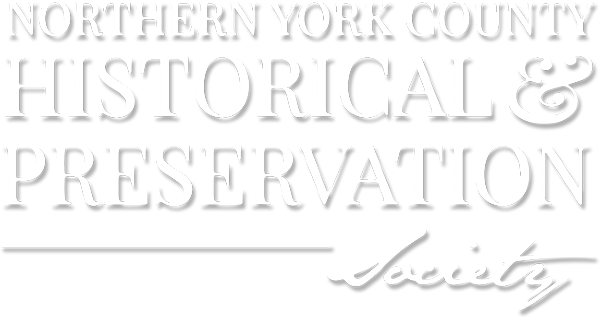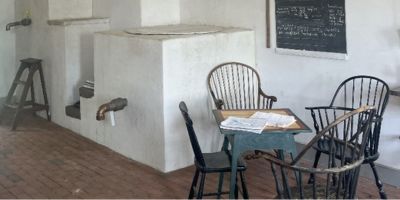
Impractical Distillers: Vol 1.7
You're In Hot Water!
It takes a lot of water to run a distillery. Much of it needs to be hot. Before electric, propane and steam, distillers used wood fires to heat water. Hot water is necessary even before the initial mashing process begins. We use boiling water and smoke to sanitize or “sweeten” fermenting barrels. How did early distillers heat the copious amounts of hot water necessary for whiskey production? Historical documents mention copper boilers but with scarce detail. Were they cauldrons or cylindrical tanks? Some early farm distilleries used their stills to as boilers to heat water. Obviously, accurate portrayal of this aspect of 18th century distilling needed more research.
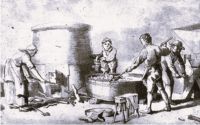 William Penn’s Pennsbury Manor provided the first hint. The brewery constructed there around 1700 had copper boilers encased in masonry fireboxes. This confirmed early use of copper to construct boilers and how they were employed. Additionally, Marc Meltonville, ” Royal Food Historian”, British foodways expert specializing in Elizabethan cooking, beer-making and spirits production responded to Sam’s query with an early English drawing of a copper boiler in action. Marc also consults with American distilleries focused on historical distilling practices. He verified wood fired copper boilers were appropriate for our time period. Finally, a 19th century coppersmith manual had drawings of how to construct a copper boiler. Confident we had accurate information; we designed the boilers to heat water for the Eichelberger Distillery.
William Penn’s Pennsbury Manor provided the first hint. The brewery constructed there around 1700 had copper boilers encased in masonry fireboxes. This confirmed early use of copper to construct boilers and how they were employed. Additionally, Marc Meltonville, ” Royal Food Historian”, British foodways expert specializing in Elizabethan cooking, beer-making and spirits production responded to Sam’s query with an early English drawing of a copper boiler in action. Marc also consults with American distilleries focused on historical distilling practices. He verified wood fired copper boilers were appropriate for our time period. Finally, a 19th century coppersmith manual had drawings of how to construct a copper boiler. Confident we had accurate information; we designed the boilers to heat water for the Eichelberger Distillery.
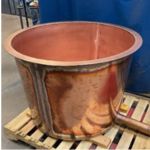
The coppersmith manual detailed the dimensions and shape of the boilers. Each was 135 gallons. Meyers Sheetmetal Division of Kampel Enterprises, Wellsville, PA built them. They were installed on top of arched fireboxes enclosed in brick masonry. The fireboxes are fed through iron doors located on the stone exterior of the distillery. One boiler is elevated about four feet to allow boiling water to flow directly into a barrel. The brick is covered with plaster in the German style.
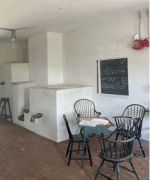 It takes about 3 hours, and lots of firewood to heat up enough water for cleaning, sanitizing and mashing in barrels. Wood-fired copper boilers are cumbersome when compared to modern gas or electric heating, but it is historically accurate and provides us with all the boiling water we need. The Eichelberger Distillery as part of NYCHAPS preserves and promotes the history and heritage of Northern York County through hands-on experiences. You can visit us to see the boilers and many other details of an early, small, farm distillery during scheduled tours, events or programs.
It takes about 3 hours, and lots of firewood to heat up enough water for cleaning, sanitizing and mashing in barrels. Wood-fired copper boilers are cumbersome when compared to modern gas or electric heating, but it is historically accurate and provides us with all the boiling water we need. The Eichelberger Distillery as part of NYCHAPS preserves and promotes the history and heritage of Northern York County through hands-on experiences. You can visit us to see the boilers and many other details of an early, small, farm distillery during scheduled tours, events or programs.
~The Impractical Distillers: Sam and Murray


